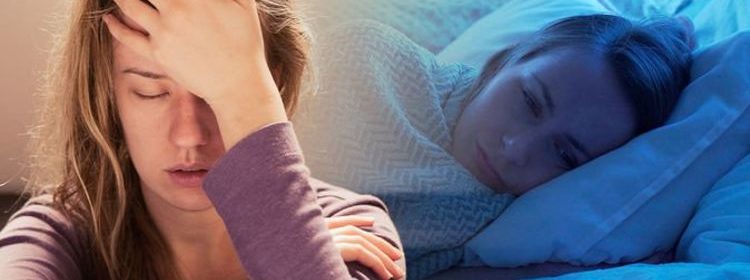The hormonal change that could be making it harder for you to wake up on winter mornings

Melatonin: Doctor advises how to take supplement for sleep
We use your sign-up to provide content in ways you’ve consented to and to improve our understanding of you. This may include adverts from us and 3rd parties based on our understanding. You can unsubscribe at any time. More info
With the winter months rapidly approaching, mornings are beginning to get darker and darker. Around this time of year, people may begin to find it difficult to spring out of bed at the sound of their alarm in the same way they may have on a sunny, summer’s day. They may also find they feel the need to sleep for longer.
The weather and drop in temperature do, in part, contribute to this difficulty rising to greet the day.
However, there is also a key change in our bodies and the productions of the hormone melatonin that could be contributing to a slower start.
What is melatonin?
Melatonin is a naturally occurring hormone that helps to control your sleep patterns.
The hormone is produced by the pineal gland at night and is associated with the sleep-wake cycle.
According to the NHS, a manmade version of melatonin is often used to treat short-term sleep problems and sleep problems in people over the age of 55.


The hormone can also be used to aid jet lag or shift work.
Although in some countries melatonin supplements is available to buy over the counter in pharmacies or health-food stores, in the UK the hormone is a prescription-only medicine.
Taking manmade melatonin can also result in a number of side effects, such as headaches, dizziness, irritability and feeling tired during the day.
DON’T MISS
Is a phlegmy cough sign of Covid? Symptoms Covid and super cold share [INSIGHT]
Covid vaccine side effects: Stay ‘alert’ to three new side effects [WARNING]
Blood clots: Six warning signs of a ‘venous clot’ slowly developing [ADVICE]
How does melatonin affect waking up in the winter months?
Darkness caused the body to produce more melatonin, which signals to the body that it is time to prepare for sleep.
Light, on the other hand, can decrease melatonin production and sends signals to the body to stay awake.
In the winter months, as the days grow shorter and the nights grow longer, some people may begin to produce more melatonin as a result.

This can make them feel sleepier more often and make it difficult to get out of bed on the darker mornings.
Some research also suggests that melatonin production in the wintertime could be linked with seasonal affective disorder (SAD).
SAD can result in people suffering from low moods or signs of depression during the autumn and winter seasons.
One of the key symptoms of SAD is feeling tired, along with craving sugary foods or overeating.
Get the latest three-day weather forecast where you live. Find out by adding your postcode or visit InYourArea
How can I make waking up on winter mornings easier?
There isn’t a lot that can be done about the mornings getting darker, but experts from StressNoMore do suggest some ways in which waking up can be made a little bit easier.
Routine can play a crucial role in making mornings feel less sluggish.
The experts said: “Set yourself goals, opting to wake up during REM sleep or one minute earlier each day – slowly lowering your alarm time will make it easier for your body to adjust.”
Kick start your day with a shower to help wake yourself up and try to have a warm breakfast to combat the cold temperatures outside.
There are also products available that are designed to help with waking up in the mornings, such as “wake-up lights”.
The StressNoMore spokesperson said: “The soft white LED light can help tackle the symptoms of seasonal affective disorder by creating the perfect light intensity, triggering a chemical change in the brain responsible for lifting your mood.”
Source: Read Full Article